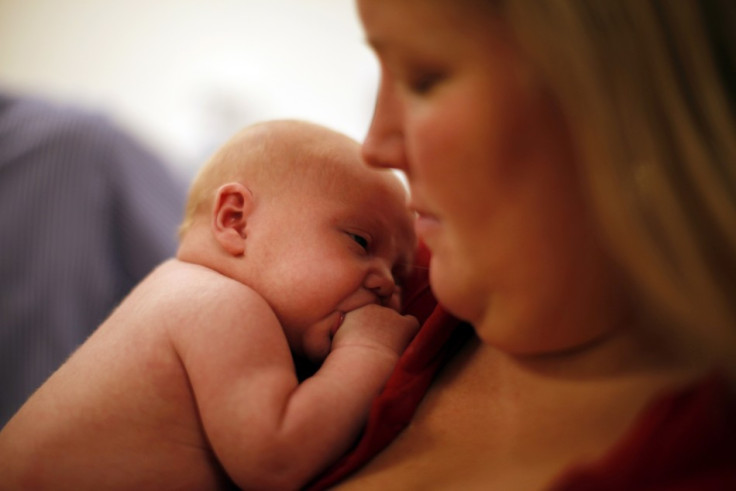Obese Women Are Likely To Have Children With Autism

Pregnant obese women are likely to have children with autism spectrum disorder (ASD) or another developmental disorder.
Researchers from the University of California have discovered that women who are obese during pregnancy are at the risk of giving birth to autistic children. They found that mothers who were obese were 67 per cent more likely to have a child with ASD than normal-weight mothers without diabetes or hypertension, and were more than twice as likely to have a child with another developmental disorder.
Researchers also found mothers with diabetes were found to have nearly 67 per cent more likely to have a child with developmental disorders compared to that as healthy mothers. They found that the children of diabetic mothers who had ASD were more disabled - had greater deficits in language comprehension and production and adaptive communication - than were children with ASD born to healthy mothers.
Even children without ASD born to diabetic mothers exhibited impairments in socialisation in addition to language comprehension and production, when compared with the non-ASD children of healthy women. Children without ASD of mothers with any of the metabolic conditions displayed mild deficits in problem solving, language comprehension and production, motor skills and socialisation.
Researchers had conducted a study on more than 1,000 mothers and children from diverse backgrounds enrolled in the Childhood Autism Risks from Genetics and the Environment Study (Charge), most of them living in Northern California, with a small subset living in Los Angeles.
There were 517 children who had ASD; 172 who had other developmental disorders but not ASD; and 315 who were developing typically. The children were aged between 24 and 60 months old. The participants were enrolled between January 2003 and June 2010.
Researchers found that more than 9 per cent of children with ASD born to women with type 2 diabetes or gestational diabetes.
Over 20 per cent of the mothers of children with ASD or developmental delay were obese, compared with 14 per cent of the mothers of typically developing children.
According to the researchers, more than 60 per cent of US women of childbearing age are overweight; 34 per cent are obese; and 16 per cent have metabolic syndrome.
Nearly 9 per cent of US women of childbearing age are diabetic, and more than 1 per cent of US pregnancies were complicated by chronic hypertension. In California, where the study was conducted, 1.3 per cent of women had type 2 diabetes, and 7.4 per cent had gestational diabetes.
Autism spectrum disorder is characterised by impairments in social interaction, communication deficits and repetitive behaviours and often is accompanied by intellectual disability. An estimated 1 in 88 children born today will be diagnosed with autism spectrum disorder, according to statistics recently released by the US Centers for Disease Control and Prevention.
"Over a third of U.S. women in their childbearing years are obese, and nearly one-tenth have gestational or type 2 diabetes during pregnancy. Our finding that these maternal conditions may be linked with neurodevelopmental problems in children raises concerns and therefore may have serious public-health implications," said Paula Krakowiak, researchers at the University of California, Davis. "And while the study does not conclude that diabetes and obesity cause ASD and developmental delays, it suggests that fetal exposure to elevated glucose and maternal inflammation levels adversely affect fetal development."
© Copyright IBTimes 2025. All rights reserved.





















